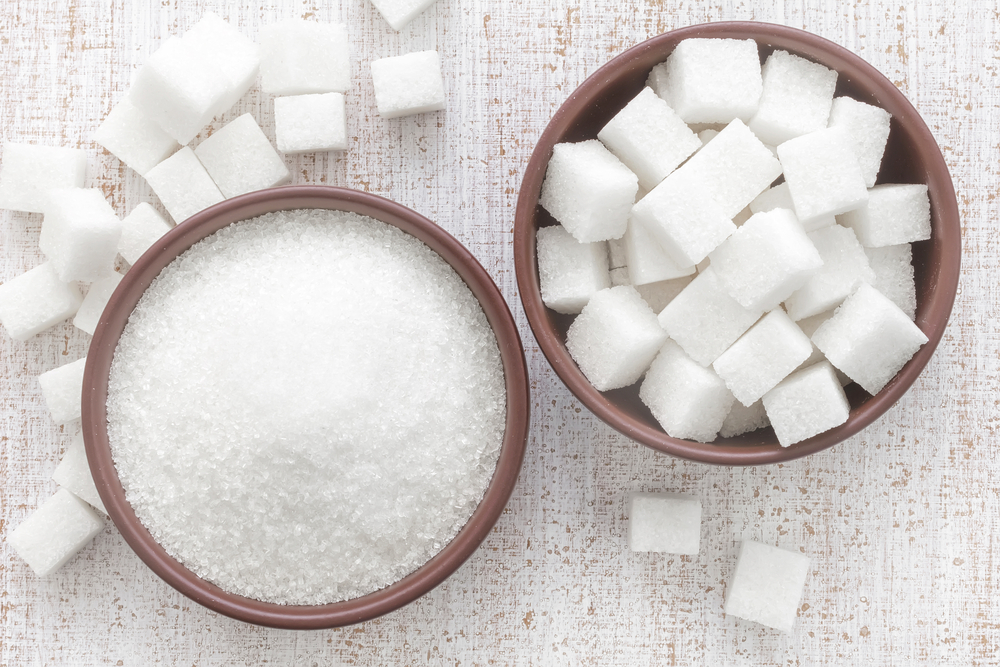Sugar Swap: Human Brain Converts Glucose into Fructose

The human brain can produce the sugar fructose, a new small study finds.
Researchers found that the brain can convert one form of sugar, called glucose, into another form, called fructose. People who have too much fructose in their diet may face an increased risk of conditions such as type 2 diabetes and obesity.
Previous research has suggested that fructose and glucose act differently in the brain. For example, studies have shown that glucose sends signals of fullness to the brain, but fructose does not, lead study author Dr. Janice Hwang, an assistant professor of medicine at Yale University, said in a statement.
But although it was clear that fructose was found in the brain, a lingering question remained: How does the sugar get into the brain, particularly in high concentrations? [10 Things You Didn't Know About the Brain]
Earlier work showed that glucose enters the brain by crossing the blood-brain barrier, the researchers wrote in the study. And although fructose is also thought to be able to cross this barrier, the sugar is found in "exceedingly" low concentrations in the blood, because it is broken down by the liver, according to the study. This means that very little fructose would be available to cross into the brain.
In the new study, published today (Feb. 23) in the journal JCI Insight, eight healthy people had their brains scanned while they received intravenous infusions of glucose over a 4-hour period. The scans measured the levels of glucose and fructose in the participants' brains using a special type of imaging.
During the 4-hour period, the researchers also periodically took blood samples to measure the participants' blood glucose levels, and adjusted the infusions to make sure that the participants maintained a specific amount of sugar in the blood. In addition, separate blood samples were taken at five points during the experiment to measure the levels of fructose in the blood.
Sign up for the Live Science daily newsletter now
Get the world’s most fascinating discoveries delivered straight to your inbox.
The researchers found that as glucose levels increased in both the blood and the brain, fructose levels in the brain also increased — but after a slight delay. For example, the researchers observed an increase in brain glucose levels 10 minutes into the experiment but did not see the increase in brain fructose levels until 20 minutes in. Fructose levels in the blood, however, didn't increase until much later in the experiment — 180 minutes in — and at that point, they rose only slightly, the researchers found.
The findings "show for the first time that fructose can be produced in the human brain," Hwang said. Previous studies have shown that fructose can be produced in animals' brains, she noted.
One way glucose is converted to fructose is through a series of chemical reactions called the polyol pathway, the researchers wrote in the study. These reactions, which convert glucose into another sugar called sorbitol, and then convert sorbitol into fructose, occur in tissues throughout the body, including the brain, they wrote. (During the experiment, the researchers also measured levels of sorbitol in the blood, and found that, as with fructose levels, they did not increase initially.)
The study suggests that fructose levels in the brain are not simply linked to the amount of fructose a person eats; rather, that fructose in the brain "can be generated from any sugar you eat," Hwang said. [5 Experts Answer: Is Diet Soda Bad For You?]
Dr. Kathleen Page, an endocrinologist and assistant professor of medicine at the University of Southern California Keck School of Medicine, who was not involved with the study, said that the findings are "intriguing" and, "if confirmed in future studies, could have important implications on the effects of sugar on brain function."
"The findings could provide new insights on how high blood glucose levels affect brain function," Page told Live Science. "This would be particularly relevant to patients with diabetes, whose blood glucose levels can fluctuate to the high levels achieved" in the study, she said.
Page noted, however, that the study was small, and that the researchers only indirectly measured fructose levels in the brain.
Originally published on Live Science.











